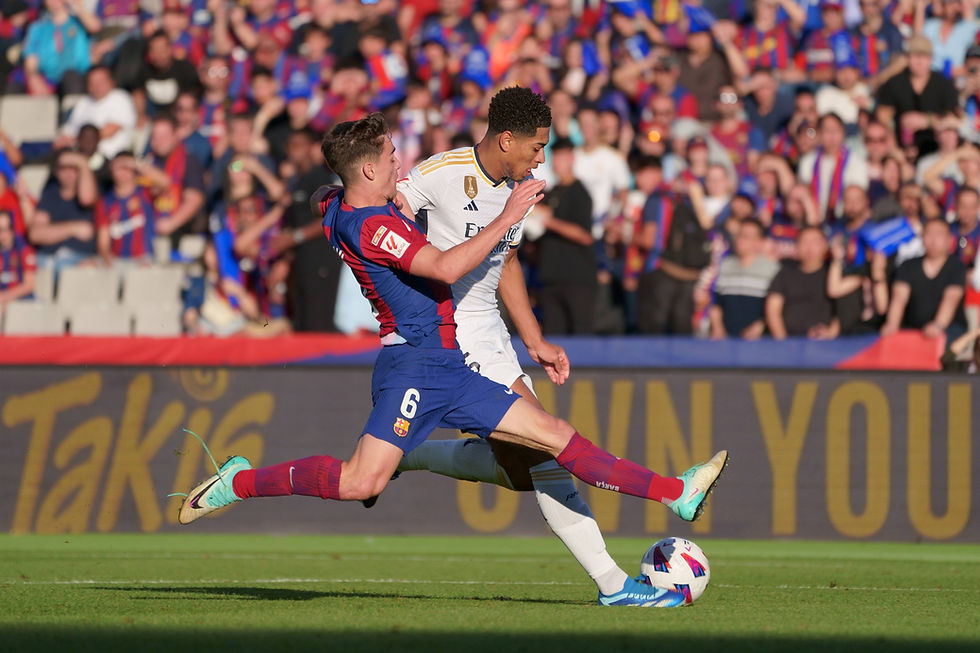Private Equity Walks Into A Stadium – How Recent Rule Changes Have Opened the Flood Gates to Major Investors And Concerns For The Regulatory Landscape
- Michael Moore
- Aug 20, 2025
- 3 min read

Over the last few years, private equity has significantly increased its presence in the sports industry, moving from the sidelines to the center of ownership and investment. This shift is driven by a number of factors, including skyrocketing team valuations, lucrative media rights deals, and a desire to unlock new revenue streams beyond traditional game-day sales.
Why Private Equity Is Investing in Sports 🏈
Historically, sports teams were often seen as "trophy assets" owned by wealthy individuals or families, with a focus on passion and prestige rather than financial returns. However, with franchise values outpacing the S&P 500, private equity firms now view sports as a robust asset class with predictable revenue streams and significant growth potential.
A major catalyst for this trend has been the relaxation of ownership rules by major leagues. The NFL, for example, recently voted to allow approved private equity funds to acquire minority stakes of up to 10% in its teams. This follows similar moves by other leagues, including the NBA, MLB, and NHL, which have opened their doors to institutional capital since 2019. This change provides owners with much-needed liquidity and capital for projects like stadium renovations and technological upgrades.
Private equity firms are not just buying teams; they are also investing in the broader sports ecosystem. This includes media and broadcasting rights, real estate developments around stadiums, and companies that provide data analytics and technology for sports organizations. By applying their business expertise, these firms aim to improve operational efficiency and commercialize assets to drive greater returns.
The Legal and Regulatory Landscape 🏛️
The entry of private equity into professional sports has prompted a new wave of legal and regulatory considerations. Leagues have been careful to implement rules that, while opening the door to institutional money, also seek to protect the integrity of the sport.
A primary concern is the potential for conflicts of interest. Leagues like the NFL, NBA, and MLB have created strict rules to prevent a single private equity firm from gaining too much power. For instance, most league policies limit private equity investments to a minority, non-controlling stake in a franchise, often with a cap on the percentage of ownership and a minimum holding period. The NFL, for example, limits a fund to investing in up to six teams, with a maximum 10% stake in each and a six-year minimum holding period. These restrictions are designed to ensure that investment is purely passive, preventing a firm from influencing key decisions like player trades or coaching changes, which could affect competitive balance across the league.
Another major legal issue is antitrust regulation. The sports leagues' long-standing "single entity" defense, which argues that teams must cooperate for the good of the league (e.g., through revenue sharing), is a key part of how they operate without violating antitrust laws. The rise of private equity firms, particularly those investing in multiple teams, could challenge this model. A single firm with stakes in several competing teams could theoretically coordinate to fix prices on tickets or broadcasting rights, or engage in other anti-competitive practices. This is a significant concern for regulators and has led to the careful structuring of investment deals to avoid these pitfalls.
Notable Examples of Private Equity in Sports 💰
CVC Capital Partners and Formula One: A landmark example is CVC's acquisition of Formula One in 2006. CVC restructured the business, expanded the race calendar, and secured lucrative media deals, ultimately selling its stake in 2016 for a significant return on investment.
Sixth Street Partners and Real Madrid: Sixth Street invested €360 million to renovate Real Madrid's stadium, with the agreement giving them rights to a portion of the non-football event revenues generated there for the next 20 years. This partnership is expected to dramatically increase the stadium's annual revenue.
Arctos Sports Partners: This private investment platform is dedicated to the professional sports industry, holding stakes in multiple teams across different leagues, including the Golden State Warriors and the San Francisco Giants.
These examples illustrate how private equity's playbook extends beyond traditional team ownership, focusing on creating long-term value through strategic business management and diversified revenue streams.
Michael Moore is a graduate of New York Law School and former member of the school’s Sports Law Society and current member of the NYC Bar Association’s Sports Law Committee. When he’s not working at the New York Law Department he’s thinking about the intersection of sports and law and when the Knicks or Rangers will finally win a championship. His writings are his own and do not reflect the ideas of his employer or the NYCBA Sports Law Committee.







The Cadillac Lyriq's driving modes can significantly impact your electric vehicle's range and battery usage. do the driving modes in cadillac lyriq offer different ranges or battery usages? Learn how to optimize these settings for the best efficiency during your drives, from daily commutes to long road trips.
Block Breaker game offers a satisfying loop of simple destruction and quick progression. Success relies entirely on the player's focus and accurate paddle control.
MM88 MM88
Go88 Go88
kuwin kuwin
MM88 MM88
iwin iwin
J88 J88
MM88 MM88
Go88 Go88
kuwin kuwin
MM88 MM88
iwin iwin
J88 J88
MM88 MM88
Go88 Go88
kuwin kuwin
MM88 MM88
iwin iwin
J88 J88